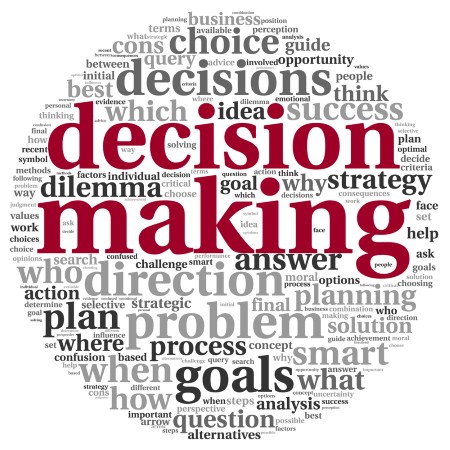How Can You Better Make Business Decision-Making

In today's highly complex and disorganized business environment,
decision-making must be integrated, contextualized and continuous to achieve
excellent outcomes. "We'd be better able to make a better decision about this if
only we had data on this." If you've heard that lately it's not atypical.
However, these are only highly evident examples of what top executives have been
struggling with for years: Too many business decisions rely heavily on the data
and models created for the status quo. If the situation shifts, the
decision-making process is unable to keep up.
Rethink the importance of data and analytics in making effective decisions
In every business, the process of making decisions is an essential
undertaking that is becoming more complex. Since decisions are based on broader
considerations, their potential effects can extend across enterprises. The lines
between strategic, tactical and operational choices are becoming increasingly
blurred. To learn more information about FS D10 Dice, you've to visit d10 roller site.
Effective decision-making requires business leaders to redefine the critical
elements, who or what is involved, and how to leverage data and analytics to
enhance the process of making decisions. The result will be a new core
capability and better business results.
It's not about reengineering every decision. It's about applying the
reengineered thinking process to the most crucial and significant decisions that
can't be taken using traditional methods.
You should consider what type of information you require and what kind of
data you can utilize, and what aspects of decision-making are best left to
humans or machines. Take note of the key collaborations you'll need and what you
are able to manage.
What effective decision making looks like
In a recent survey, Gartner found that 65% of the decisions taken are more
complicated (involving many more parties or options) than they were two years
ago. The current state of decision-making isn't sustainable.
A good decision-making process requires understanding, context and connection
to reengineer decisions that are based on greater uncertainties and
complexity.
Connected
No decision stands on its own. The decisions of one person impact other
actors within the ecosystem and in the business, and vice versa. The process of
making decisions must be more interconnected, at every level, not just in a
hierarchical sense (strategic > tactical > operational) however also in an
a networked sense. Sharing of data and insights across the organizational divide
is essential.
Contextual
Alternatives to make a decision must be evaluated in a context-sensitive
manner that is beyond the context of the particular occasion or transaction.
Many companies do not offer the same level of personalization to their company
information and analytics that they would offer to customers.
Continuous
The organization must be as flexible as they can be to potential changes and
opportunities. Making decisions are becoming a continuous process in which
organizations need to keep their options open.
Contextual, connected, and continuous decision-making results in numerous business benefits, including greater transparency, accuracy, and scalability.
Comentarios
Publicar un comentario